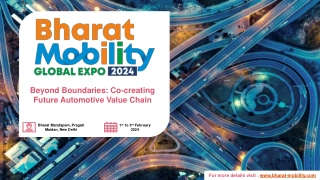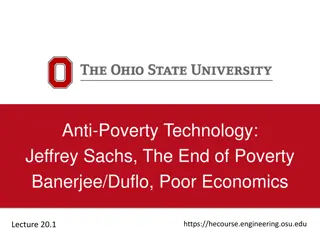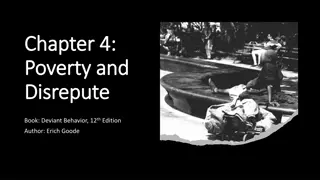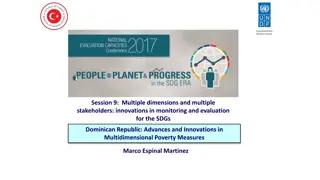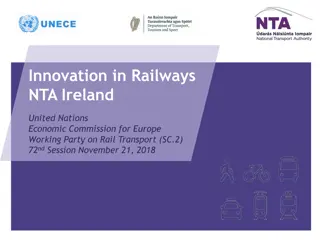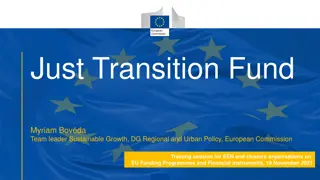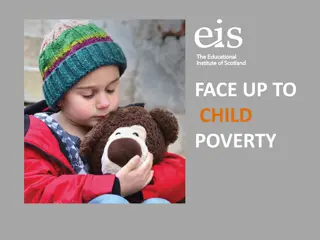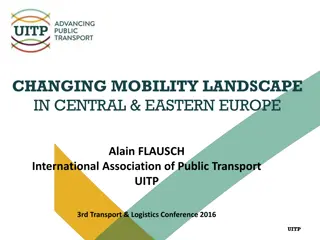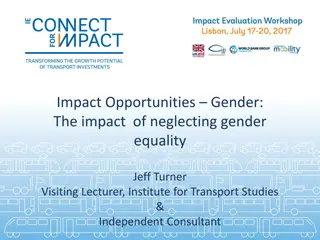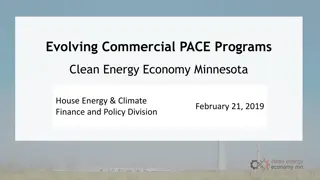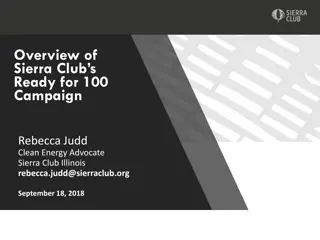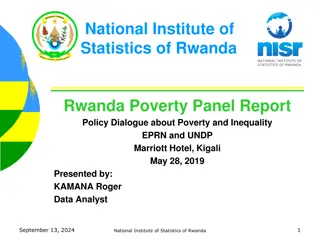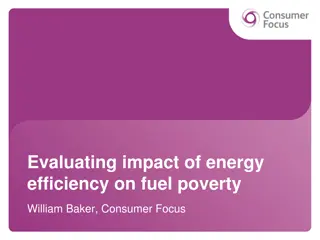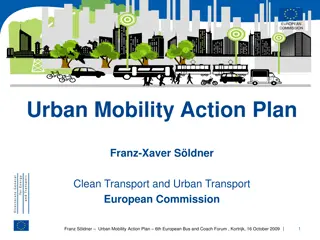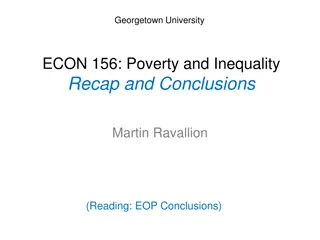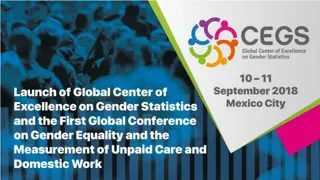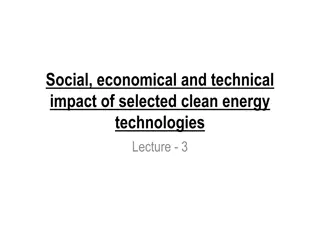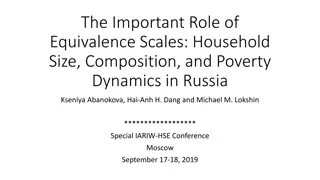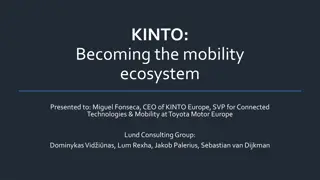Just Transition to Clean Mobility: Addressing Transport Poverty and Inequalities in the Energy Crisis
The European Parliament discusses the urgent need for a just transition to clean mobility to tackle transport poverty and inequalities amidst the energy crisis. Bela Galgoczi emphasizes the multidimensional nature of environmental, climate, and social inequalities, urging for comprehensive policies that prioritize fairness in mobility. The focus is on addressing fuel expenditures, transitioning from internal combustion engine cars to zero-emission vehicles, and enhancing access to affordable low-carbon transport solutions to combat transport poverty effectively.
Download Presentation

Please find below an Image/Link to download the presentation.
The content on the website is provided AS IS for your information and personal use only. It may not be sold, licensed, or shared on other websites without obtaining consent from the author. Download presentation by click this link. If you encounter any issues during the download, it is possible that the publisher has removed the file from their server.
E N D
Presentation Transcript
Just transition to clean mobility dealing with a new constellation of inequalities Preventing Transport Poverty and Increasing Fairness in Mobility TRAN Committee hearing European Parliament, Brussels 27 October 2022 Bela Galgoczi, European Trade Union Institute, Brussels bgalgoczi@etui.org
Outline Environment/climate/social inequalities Multiple dimensions, scope and scale One-dimensional responses to multidimensional inequality are not effective The new geopolitical context and the effects of fossil energy inflation a watershed moment for Europe While a speeding up of EGD policies is clearly the answer, in short term there are difficult trade-offs Address burning social issues now without compromising EGD objectives Addressing transport poverty in the shadow of the broader energy crisis plays a secondary role Just transition policies are more important than ever
Energy and transport poverty Transport makes up 27% (road transport 19%) of total EU emissions and not decreasing Russia` aggression highlighted the EU`s long term fossil fuel dependence and the need to get out of it the new geopolitical situation resulted in a price shock Address its worst effects without jeopardizing climate ambition - in the centre of policy debate Just transition is about fair burden sharing on way to net zero > beside energy poverty, transport poverty is in policy focus, not least since the FF55 package with the ETS2 but now at a much larger scale
Transport poverty While Eurostat has no data yest for 2022, Allianz research suggests that in the first half of 2022 energy poverty has been doubled Transport poverty is associated with the limited ability to satisfy everyday mobility needs: Availability of transport (services offered) Accessibility of low carbon transport solutions The cost or affordability of transport Time spent travelling The adequacy of transport travel conditions Key factors: high fuel expenditures, the phase-out of internal combustion engine cars, high costs for the replacement of internal combustion engine cars with ZEV, high costs or lack of availability of adequate, affordable public or alternative modes of transport
Fuel price regressivity? While for energy, price increases (market or carbon price related), are clearly degressive (hitting the poor most), this at least at first glance - is not inevitable for transport fuel costs There is a general lack of data and research for in- depth analysis Modelling results (by IEEP) show that it is not the lowest income decile where the share of transport fuel in household expenditure is the highest (but in the 4th and 5thdecile) and there is a big urban/rural divide Poorer MS have higher shares (e.g. Poland)
Share of transport and heating cost in household expenditure by income deciles in the EU27, 2020 6 Source: Institute for European Environment Policy (IEEP) 2022
National measures (and funding) to shield consumers from higher energy price transport is falling short Country Energy /VAT tax cut Retail price Whole-sale price Transfers to poor Mandate to state firms Windfall profits tax Support to business State funding* Bn EUR % GDP Austria Belgium Bulgaria Czechia Denmark France Germany Greece Italy Lithuania Netherlands 9.1 4.1 0.8 5.9 0.5 44.7 60.2 6.8 49.5 2 6.2 2.3 0.8 1.2 2.5 0.1 1.8 1.7 3.7 2.8 3.6 0.7 Poland Romania Spain 7.6 3.8 27.3 1.3 1.6 2.3 Source: Bruegel (2022), IMF (2022), Eurelectric (2022) 7
Addressing transport poverty In the current energy price crisis, measures to address transport poverty are falling short The EU emission standards for cars and vans is driving a regulatory upmarket drift (mass adjustment factor, super- credits) cars (including BEVs a PHEVs) are becoming heavier, more powerful and more expensive this is dysfunctional for reaching zero-carbon and deeply unjust Electrification is not affordable and subsidies go to the rich while the poor are locked in in fossil fuel trap Fleet-change at large scale is not realistic Affordable public transport integrated transport systems of multi-modal transport is the answer, but progress is very slow (only a few good practice cases) Clean transport cannot become `digital` - electric car and bicycle public transport should play a much bigger role 8


